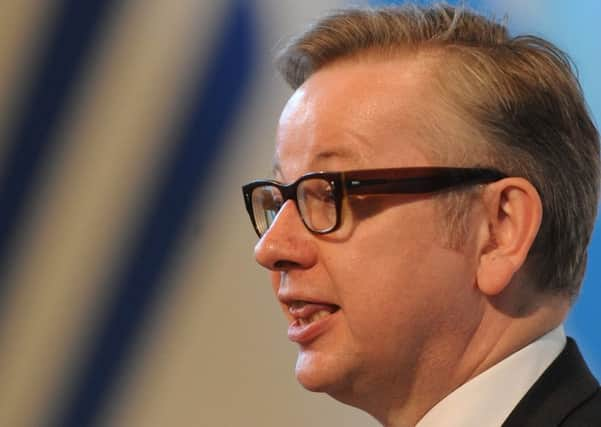Chris Marshall: Once ‘toxic’ Michael Gove is back


In this transformed political landscape, Scotland may have sent 56 SNP MPs to Westminster, but is not represented in cabinet in the way it was under the governments of Brown and Blair, when Scots variously held roles such as chancellor and foreign secretary.
One Scot, however, will wield a considerable amount of power at the heart of the new Tory government.
Advertisement
Hide AdAdvertisement
Hide AdMichael Gove, who grew up in Aberdeen, returns as a minister after been taken out of the firing line in the run-up to last week’s poll.
Handed the role of chief whip after winding up England’s teachers in an ideologically-driven reform of the country’s schools while education secretary, Gove is back on the frontline as the new Justice Secretary.
And his first job is nothing if not contentious – scrapping the Human Rights Act (HRA).
Depending on your politics, the act – introduced by Tony Blair’s government in 1998 – is either a last-line defence of a person’s unalienable rights or a criminals’ charter which allows meddling Strasbourg judges to bestow privileges on terrorists.
The Tory plan, borne out of frustration over the ten-year battle to deport radical cleric Abu Qatada, is to replace the act with a new British Bill of Rights, which will break what the party calls the “formal link” between the British courts and the European Court of Human Rights. The Tories say the UK Supreme Court will then become the “ultimate arbiter” of human rights matters in the UK.
There is even a suggestion the party could go further and take the drastic step of removing the UK from the European Convention on Human Rights.
The Scottish Government has already indicated its opposition to the plans, which it believes it can resist under the Sewel Convention, effectively refusing its consent and offering a two-fingered salute in its place.
According to Aileen McHarg, a professor of public law at Strathclyde University, repeal of the HRA would mean Scots would no longer be able to bring actions against UK departments or public bodies under the European Convention on Human Rights, but would be able to against devolved institutions.
Advertisement
Hide AdAdvertisement
Hide AdWith an overall majority in the Commons, the Tories’ proposal to scrap the act may already be a fait accompli.
Gove, the Scot who Tory strategists believed had turned “toxic” in the run-up to the election, is ready to reprise his role as the party’s bogeyman.